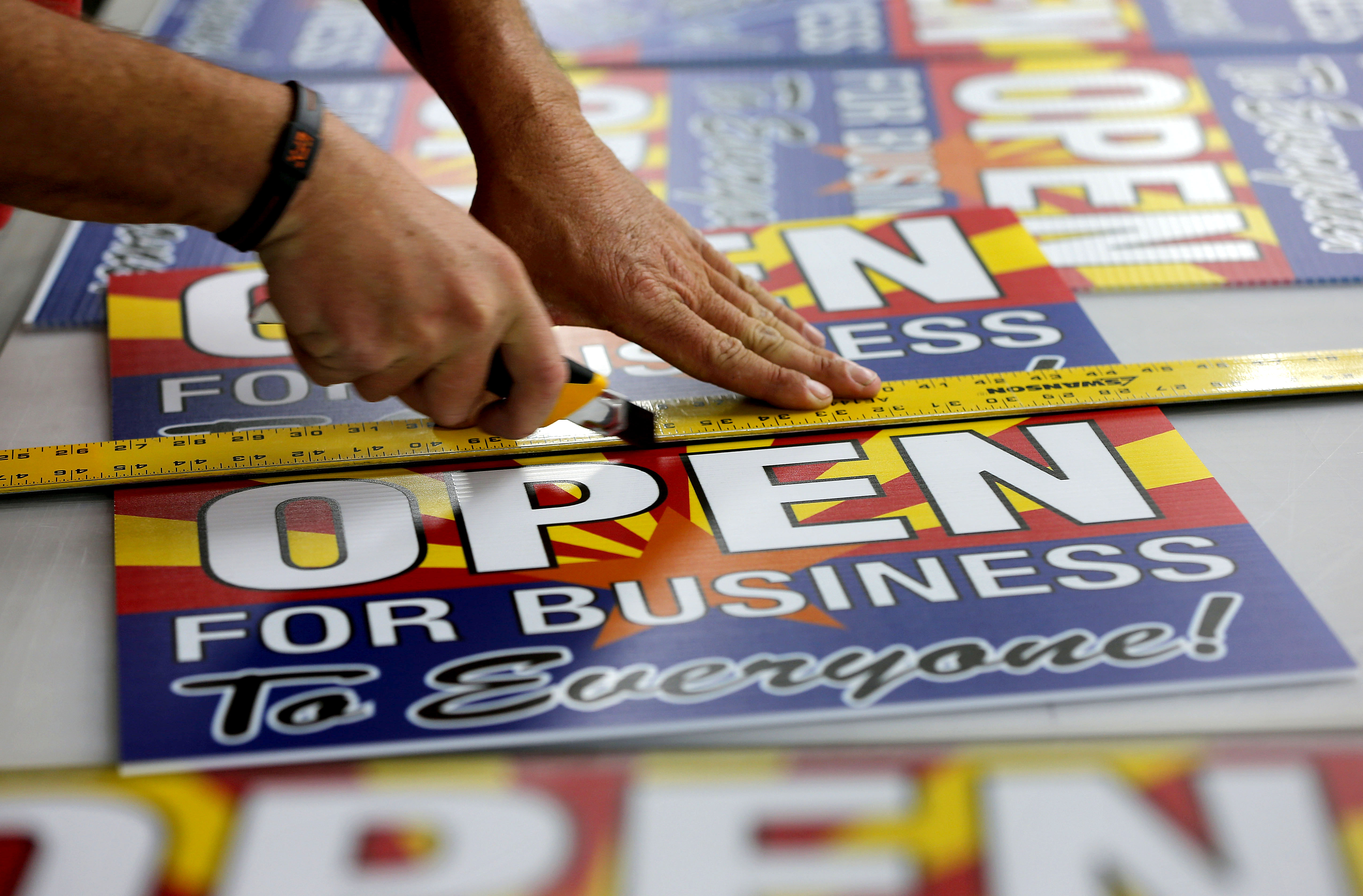It's slowly getting easier to be an LGBT small business owner
Part of our ongoing series on the future of small business in America


A free daily email with the biggest news stories of the day – and the best features from TheWeek.com
You are now subscribed
Your newsletter sign-up was successful
When LGBT rights and small businesses are mentioned in the same breath, it's usually in reference to the vocal minority that feels serving gay customers violates their religious freedom. But while that stigma persists around the LGBT community in pockets of the business world, LGBT-owned businesses are actually taking off. Indeed, there's something of a "perfect storm" of success fueling many of the approximately 1.4 million LGBT-owned businesses in the U.S., said David Perry, the Small Business Administration's national director for LGBT outreach.
This year, the National Gay and Lesbian Chamber of Commerce, the largest advocacy organization for LGBT business owners, strengthened its partnership with the SBA. Together, they launched the LGBT Business Builder, an initiative designed to encourage business owners to seek out more resources and obtain official certification from the NGLCC as LGBT-owned companies.
Meanwhile, the government is increasing its efforts to work with LGBT suppliers (though there's no specific law requiring a minimum percentage of business must come from LGBT companies, as is standard for women- and people-of-color-owned ventures). And in the private sector, more than a third of Fortune 500 companies actively recruit LGBT-owned vendors. That's a figure the NGLCC and the SBA both expect will keep rising in the coming years.
The Week
Escape your echo chamber. Get the facts behind the news, plus analysis from multiple perspectives.

Sign up for The Week's Free Newsletters
From our morning news briefing to a weekly Good News Newsletter, get the best of The Week delivered directly to your inbox.
From our morning news briefing to a weekly Good News Newsletter, get the best of The Week delivered directly to your inbox.
"We know when we get diverse business owners that critical seat at the table, they will compete and win business," said Sam McClure, an NGLCC senior vice president.
But getting LGBT business owners those seats at the table can still be challenging. Workplace discrimination laws vary on state and even local levels, something that can lead LGBT people to doubt the federal government's support for diversity, McClure said. That should change over time, as public policy evolves along with public opinion. Indeed, it seems likely that the 28 states that don't explicitly prohibit discrimination in the workplace based on sexual orientation would not be able to legally fire someone based on that criteria (though the Equal Employment Opportunity Commission's ruling is non-binding for private companies). The Equality Act, a Democrat-proposed amendment to the Civil Rights Act of 1964, would end discrimination by gender identity and sexual orientation at work and in other areas, should it pass Congress.
Workplace discrimination isn't the only business issue that LGBT advocates would like to see addressed. Some of the biggest challenges LGBT small business owners face is if and when to come out both to their employees, and to potential funders. Staying closeted isn't ideal, and for some people, their appearances mean it's not even an option. Out entrepreneurs risk funders stepping away, sometimes even calling supporting LGBT businesses a "gamble," said Chris Sinton, who has founded multiple philanthropic tech companies and serves on the board of StartOut, a nonprofit fostering LGBT entrepreneurship.
A related barrier to scoring funding: the surprisingly widespread assumption that LGBT business owners are wealthy. There are, of course, plenty of wealthy gay white men in business. But plenty don't fit that stereotype. And when it comes to more marginalized groups — like, say, black transgender women — it can be even tougher. Plus, same-sex couples with children are on food stamps at twice the rate of different-sex couples. Gay men earn less than straight men with the same experience, education, and places of residence. It's safe to say many LGBT entrepreneurs don't come from money.
A free daily email with the biggest news stories of the day – and the best features from TheWeek.com
Still, while the landscape has always been tough for LGBT entrepreneurs, increasingly there are resources at their disposal to help. Depending on the business, an LGBT certification could be key in opening doors to government opportunities. Resources like StartOut are also there to help. Networking with more established owners who have been in your shoes is a great way to navigate early stumbling blocks in access to funds and discrimination you may face.
"We're seeing a lot of basic rights being granted to our community," Sinton said. "The next focus of the LGBT movement is on economic empowerment and political empowerment."
Julie Kliegman is a freelance writer based in New York. Her work has appeared in BuzzFeed, Vox, Mental Floss, Paste, the Tampa Bay Times and PolitiFact. Her cats can do somersaults.
